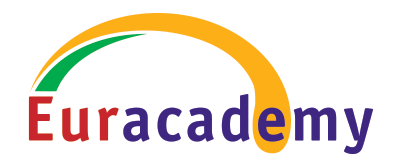Distance learning
The Thematic Guides used in the three first Summer Academies were adapted to distance learning format and uploaded in a specially constructed platform. Distance Learning Courses were run in English and other languages, as follows:
- The 1st distance learning course on “Developing Sustainable Rural Tourism” was run in English for 10 weeks between April and July 2003 and attracted over 60 participants from 15 European countries, supported by a team of 10 tutors. The course has been run also in Polish and Spanish.
- The 2nd distance learning course on “Information Society and Sustainable Rural Development” was run in English for 8 weeks between September and November 2003, attracted over 55 participants from 17 European countries and was supported by a team of 8 tutors, 4 of which were participants to the 2nd Summer Academy. The course was also run in Polish.
- The 3rd distance learning course on “Diversification of Rural Economies and Sustainable Rural Development in the Enlarged Europe” was run in English in the first quarter of 2005 and attracted over 30 participants from 7 European countries, supported by a team of tutors and facilitators from N. Copernicus University. The course is also planned to run in Polish.
- A revised and enriched version of the 1st distance learning course on “Developing Sustainable Rural Tourism” run in English and Ukrainian during 2007, with much additional material in the form of lectures, exercises and tasks for the students, leading also to certification. This course is available to Euracademy members, and can be re-run either as a self-administered course or tutor-assisted, if there is interest by at least 15 candidates
- The 4th distance learning course on “Ecotourism Labelling and the European Ecotourism Labelling Standards” that runs in English from August 2009. The course is expected to attract at least 30 participants from 10 European countries and will be tutored and supported by facilitators.
- The 5th distance learning course on “Traditional Skills” will run from August 2009 in English with material also translated in other EU languages. The course will showcase traditional skills from Greece, Bulgaria, Poland, Hungary, Italy, France and Sweden and is expected to attract several participants from across Europe. The course will be self-tutored with support by facilitators.
Further to the above, two blended learning courses run in 2005 on “Developing Sustainable Rural Tourism” and “Information Society and Sustainable Rural Development” addressing mostly small enterprises in rural areas in Norway, UK and Romania. These courses combined e-learning with face-to-face seminars and tutorials.
Future runs of the courses are planned for groups of Association members; if you are interested please contact us and you will be notified in due course.
European cooperative Masters programme on Rural Animation
Euracademy Association is also planning the development of a Masters programme aiming to establish the profession of rural Animator, which is pivotal for rural development and the effective involvement of individuals and organisations of rural areas in the sustainable development process. A number of the Association’s corporate members which are tertiary educational institutions have expressed interest and the issue will be investigated further. The course will have a strong European dimension.
Networking the rural-targeting networks
Euracademy Association is considering at present the uptake of an initiative to bring together several European and national networks that have an interest in sustainable rural development, the development of the civil society in rural areas and the capacity building of citizens in rural communities. The ‘networking of networks’ is expected to bring added value to the work of the Association and the other networks and create a forum with wide-ranging mobilisation potential for the benefit of citizens in rural areas.
